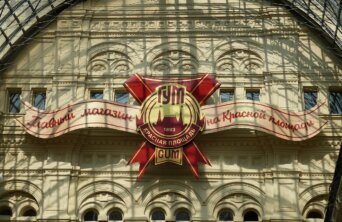- About
- Topics
- Story
- Magazine
- In-Depth
- Picks
- Opinion
- News
- Donate
- Signup for our newsletterOur Editors' Best PicksSend
Read, Debate: Engage.
| topic: | Rule of Law |
|---|---|
| located: | Russia |
| editor: | Igor Serebryany |
The popular vote aimed at "sanctification" of the new edition of the Russian Constitution might be postponed indefinitely, the Kremlin hinted on Monday. This could be done to safeguard voters during the coronavirus epidemic.
The amendments to the Constitution allow president Vladimir Putin to stay in power indefinitely.
Until recently, they have scheduled the vote on April 22, the birthday of Vladimir Lenin. On Monday, the Central Election Commission (CEC) mailed out an order to the local commissions to suspend preparations to the vote. No date of resumption has been set.
Last week, Putin said that the health of the nation is more important than judicial procedures. He admitted the referendum could be postponed if the epidemy would not subside.
It does not. The city of Moscow on Monday introduced "home arrest" for everyone older than 65 until further notice; St Petersburg governor hinted the northern capital might be closed for non-residents. These days, trains from Moscow to St Petersburg, which are normally packed to capacity, are nearly empty. In St Petersburg, many buildings are marked with graffiti blaming Putin for a "referendum in times of plague".
Also this week, head of the CEC Ella Panfilova said enigmatically that the referendum has become redundant as the amendments have already come into force and need no popular approval.
She cited the existing edition of the Constitution, which reads that amendments to the Basic Law come in force after they are approved by all Russia's regions and Constitutional Court. The job was done with the speed of light over the last weekend.
Postponing of the referendum is inevitable, but its complete scrapping is highly unlikely “even though it affects nothing, either way", says the member of the Presidential Human Rights Council, Nikolai Svanidze.
To hold a referendum the same time the authorities cancel all public gatherings and introduce tight quarantine would be inappropriate. "Formally, Ella Panfilova is correct: the vote is unnecessary because, legally, the amendments have come in force", he says.
Still, Vladimir Putin is aching to obtain people's support for some reason. He might be starving for such a support for his psychological comfort, to persuade himself that he has a sacred right to Russia's crown.
Putin has been in a desperate rush to obtain a "popular legitimacy" despite having four years ahead before his current term expires, Svanidze highlights.
The expert explains the rush, together with the Kremlin's realisation that the situation in Russia, as well as worldwide, is highly unstable.
The situation can change overnight. Pandemic, oil price, exchange rates all are unpredictable. Putin can receive the people's uncontested support only if there is a certain level of stability. The referendum's expiry day is in 2024. But the Kremlin is afraid that the system might start collapsing so rapidly that the Russians would stop caring about any referendums at all, Svanidze says.
Russian authorities don't want to put off till tomorrow what could be done today, dean of the sociology department in the Governmental Financial University Alexander Shatilov believes.
It looks like those within the Kremlin have understood that the idea to conduct the referendum was a mistake. They could reach the same objectives without populist games. This is what Ella Panfilova said. But since the machine has been put into work, the Kremlin has been trying to finalise it as soon as possible. The referendum's new date will be set the day after the epidemic emergency is lifted, he predicts.
Such a date, he supposes, could be the 12th of June, which is Russia Day.
"I have a gut feeling that Putin regrets he has launched preparations to the referendum in the time Russian citizens have far more urgent things to think about. So Putin may attempt to delay the vote until the time when panic in the society subsides. This is because to make the vote look credible, the Kremlin needs high turnout more than high a percentage of those who voted in support", Shatilov says.
It is nonsensical to expect a high turnout during a quarantine which has currently been introduced until April 12.
Image by falco
